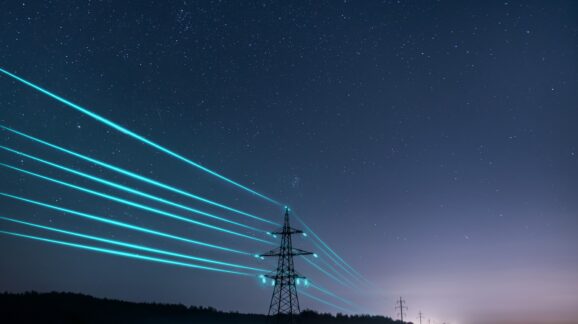Generator sales are rising… And there’s good reason

Photo Credit: Getty
I bought a house earlier this year, and to my absolute delight, it came with a built in 16 kilowatt (kW) generator, plenty of power for a medium sized house.
Given increasing electrical grid unreliability, many Americans are in the market for a new generator. Whether they’re upgrading from a portable generator to a built-in standby generator, or buying a portable one for the first time, many are rethinking their longstanding trust in the reliability of the grid.
When I first bought my house, right as I was moving in, I was there alone late one night scrubbing the walls in the kitchen, getting them ready for a new coat of paint the next day. It was a dark and stormy night (really), and at one point as I was scrubbing away and listening to what was probably an Agatha Christie audiobook, the thunder crashed, lightening flashed, and the lights flickered once, twice, and then went out.
At that point I would usually be turning on my phone flashlight and beginning the search for errant candles or the stray flashlight. Instead, I waited with anticipation to see if my generator would work as advertised. Thirty seconds later I heard it thrum on outside, and inside of two minutes my lights were back on as if nothing ever happened.
Now this was just a small thunderstorm, and the outage it caused only lasted a little while. Twenty minutes later I heard the generator shut itself off as power returned. But there will almost certainly be longer storm outages in the future and given the state of most of the country’s power grid, chances are good that there could be blackouts caused by an inability to meet demand rather than from a downed line in a storm.
I’m happy to have found a way to insulate myself slightly from the state of the power grid (I live in Pennsylvania and my power comes from the PJM interconnection). Many other Americans with some combination of the means and foresight to do so are taking the same precaution.
Fortune Business Insights found that the generator sales market in the US was valued at $6.1 billion in 2023, and projected that it will grow to 6.43 billion by the end of this year, and to $10.26 billion by 2032.
I appreciate a clever short-term solution to a problem, and I’m a fan of being prepared to meet any eventuality. I think it’s largely a very good thing that more people are taking the initiative to ensure that they have an alternative power source in a blackout.
What concerns me is both the reasons behind this growing impulse, and those that will be left behind in a crisis.
The grid should be reliable enough that a standby generator feels like a needless extravagance rather than a reasonable precaution. Lawmakers should be working to ensure that power supply problems don’t lead to blackouts.
In my new paper at the Competitive Enterprise Institute “How to Keep the Lights On”, I outline 9 principles that lawmakers should focus on to ensure that power remains reliable, and generators like mine remain a superfluous display of preparedness rather than a constantly relied upon crutch for poor policymaking.
If the principles had already been followed, Americans would be less interested in buying generators because they could rightfully expect that their lights will stay on. Unfortunately, since the importance of reliability has been minimized by some policymakers, many Americans are realizing they could soon find themselves in the dark.
A version of this article first appeared on Catalyst.